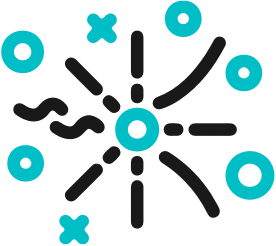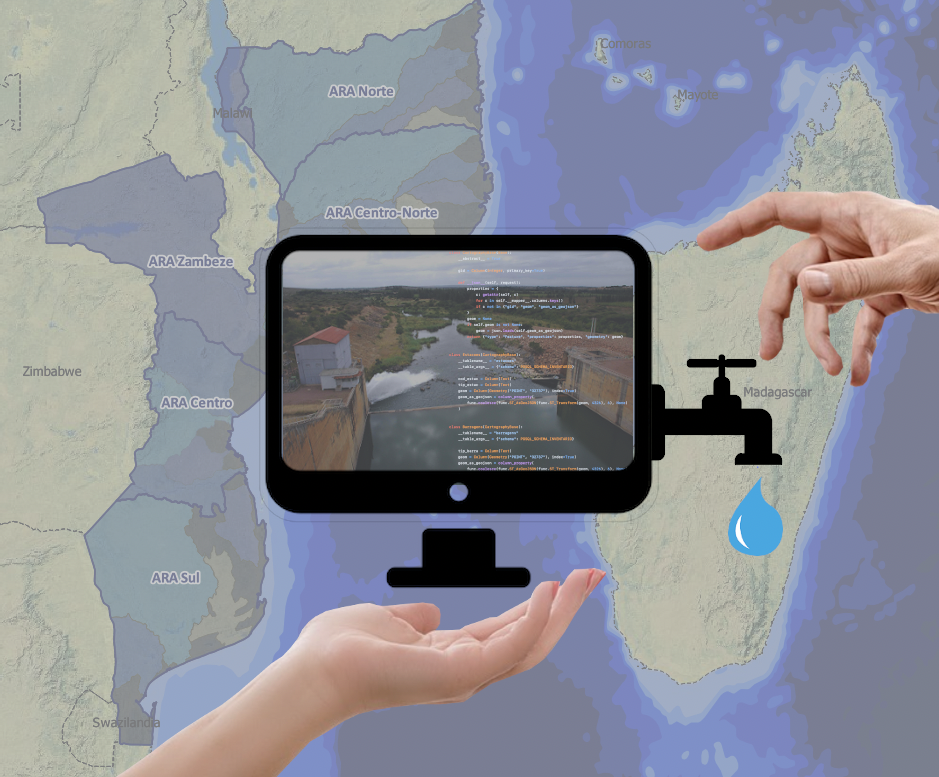Following the successful outcomes of the SIXHIARA project, which improved the capacities of Mozambique’s Regional Water Administrations Public Institutes (ARAs IP) in inventory management and user licensing, the GERHARA project represents a new strategy focuses on water governance, sustainability, resilience to climate change, and the integration of a feminist gender perspective in water resource management.
GERHARA, financiado por la Cooperación Galega a través de la convocatoria de proyectos, está concebido en 3 fases. Actualmente se está ejecutando la primera de ellas, cuyo fin es mejorar la disponibilidad de agua de la población del sur de Mozambique y proveer una gestión del recuso más sostenible.
GERHARA, financed by Galician Cooperation through their project call, is designed in three phases. Currently, the first phase is being implemented, with the aim of improving water availability for the population in southern Mozambique and providing more sustainable resource management.

Problems posed by the project
Mozambique is considered the most vulnerable country in the world to climate change. Recent projections indicate that an increase in the frequency, intensity, and magnitude of disasters will experience. The potential annual losses will reach $450 million by 2040 due to damage to agriculture, infrastructure, and energy production. Rising temperatures and precipitation concentration will increase the frequency of floods and exacerbate the impact of droughts.
The lack of adequate access to water and sanitation is the primary problem for a significant portion of the population, particularly in rural areas. The unequal distribution of water resources and insufficient capacities of responsible administrations result in low water availability and socially and environmentally unsustainable management.
The Regional Water Administrations of Mozambique (ARAs IP) are responsible for the operational management and planning of water resources. GERHARA will also cooperate with other institutions, including the National Peasants Union (UNAC) to address the identified problems:
- Low management skills of ARA-Sul, IP: This institution requires substantial improvement in internal coordination, an increase in the number of available technical staff, and enhancement of their capacities to address the necessary tasks. It is also important to establish resilient methodologies against climate change and droughts. Additionally, the establishment and promotion of a gender policy within the institution are considered important to reduce the gender gap in decision-making and overall operations.
- Inadequate water balance management: The demand in many river basins exceeds the availability, leading to severe water stress. In general, ARA-Sul, IP lacks knowledge about the actual water consumption and its impact on the river basins. The current state of water availability or supply is not well-modeled, and accurate forecasts of climate risks for future scenarios are not implemented.
- Inequality in water distribution: In the Umbelúzi River basin, particularly in the area influenced by the Pequenos Libombos Dam, commercial use by large agricultural and industrial operations is prioritized over domestic use by the population, which contradicts Mozambique’s water law.

And how we solved them
The central objective of the project is to achieve socially and environmentally sustainable water resource management. To accomplish this, we employ the following pillars of action: building technical capacities, raising awareness and education in the establishment of management and planning policies, as well as promoting awareness and increasing the participation in decision-making processes of associations and communities of the civil society.
To progressively achieve the set objectives, attain true empowerment of institutions and the involved population, as well as address the identified problems during the project formulation, we work on different issues:
- Aumento de las capacidades de gestión del ARA-Sul, IP: tiene el fin de alcanzar una gestión eficiente del recurso hídrico, mejorando la coordinación entre las divisiones de gestión de cuenca y la sede, creando una política de género y mejorando las capacidades técnicas y financieras de esta institución.
- Correcta gestión del balance hídrico: incide en la aplicación de modelos y sistemas para la estimación adecuada y precisa de la demanda y de la disponibilidad real de agua.
- Aumento de la gobernabilidad en el acceso y equidad del agua: tiene el fin de mejorar y aumentar los espacios de participación de la población y líderes comunitarios en la toma de decisión sobre el seguimiento, uso, restricciones y planificación del recurso hídrico, para lo cuál se contará con el apoyo y experiencia de la UNAC.
- Enhancement of management capacities of ARA-Sul, IP: This aims to achieve efficient water resource management by improving coordination between the watershed management divisions and the headquarters, establishing a gender policy, and enhancing the technical and financial capacities of this institution.
- Proper water balance management: This focuses on the application of models and systems for accurate estimation of water demand and real availability.
- Increase in governance for water access and equity: This aims to improve and expand the participation spaces for the population and community leaders in decision-making processes related to monitoring, usage, restrictions, and planning of water resources. The project will receive support and expertise from UNAC (National Peasants Union) in this regard.
The main activities identified to achieve the established objectives are:
- Strengthening of ARA-Sul, IP in climate change and drought resilience.
- Implementation of the gender action plan of ARA-Sul, IP.
- Update the agricultural farm inventory through remote sensing.
- Modelling of water demand from agricultural farms.
- Integration of hydrological models in decision-making processes.
- Analysis of the inequitable access to the water situation in Pequenos Libombos.
- Promotion of dialogue spaces between the population and ARA-Sul, IP.
- Dissemination of water rights and obligations.
- Rehabilitation of a small “efficient” irrigation infrastructure.



